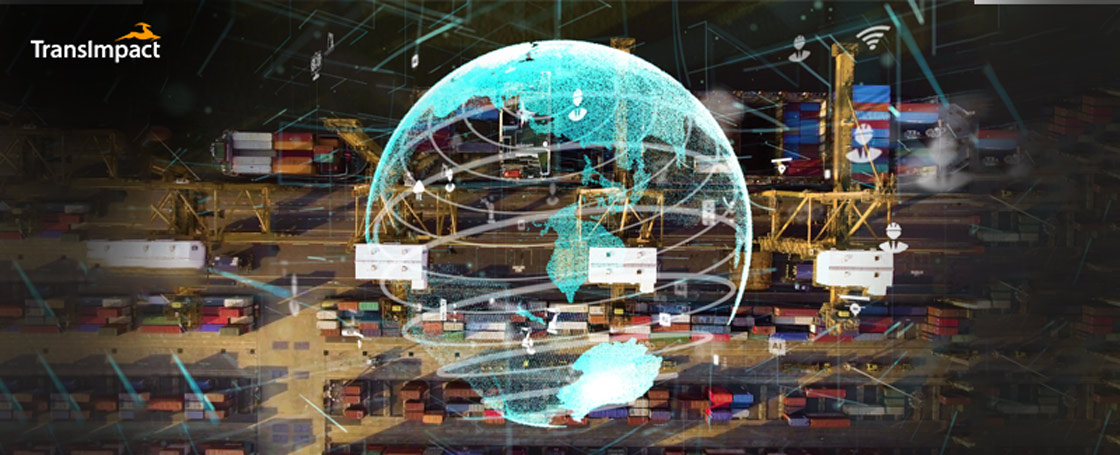
In recent times, supply chains have become considerably more challenging to handle. Longer and highly interlinked physical flows reflect the increasing complexity of the product portfolio. Market volatility, which the COVID-19 pandemic has intensified, has raised the need for flexibility and agility. And increased importance of the environmental impact of supply chain management is triggering the optimization and regionalization of flows. Because of this scenario, businesses and decision-makers have become more stringent on supply chain digitization.
Supply chain optimization solutions based on artificial intelligence are expected to be potential instruments to help businesses face these challenges. An integrated end-to-end perspective can convey the opportunities and constraints of all business operations, from procurement to sales. AI’s capacity to analyse vast amounts of data, understand relationships, deliver optimum visibility into operations, and support better strategic decision-making makes it a potent game changer. However, getting the most out of these solutions is not just a matter of technology; organizations must take adequate steps to harness the full potential of AI.
AI has revolutionized recently, developing into a robust tool for various business applications. Below, we will observe how AI can be utilized and improve the optimization of the supply chain.
- Efficiency
Managing a supply chain is all about efficiency. Because of the interconnectedness of the supply chains, delays or issues in one part of the network have sizeable impact on other parts of the network. AI plays a tremendous efficiency advantage over humans and even other computer-based systems, enabling you to take care of any issues as quickly as possible.
- Data Management
One of the most time-consuming aspects of supply chain management is going through and effectively categorizing or logging data. The supply chain produces vast amounts of data and observing and incorporating this data into your demand planning and forecasting software can be a hefty task. AI-powered automated technology does this repetitive task for you and takes the pressure away from your hand, leaving almost zero human error possibilities.
AI is comprehensively trained in data retrieving and responding to vast data pools with processes like a machine and deep learning. An AI system learns and becomes more refined, faster, and more intelligent at processing this data.
- Reconfiguration
While every organization hopes to develop supply chain efficiency to avoid potential discrepancies or inconsistencies, the reality is this part of the company’s operations can be anything but smooth. An AI in supply chains can take a broader view of the complete operations to find ways to optimize them by consolidating multichannel suppliers of a particular product into one provider or by identifying faster or cheaper ways of delivering materials between two or more networks.
- Demand Forecasting and Capacity Planning
Supply chains undergo different stresses related to delays, backups, the breakdowns of one or more parts in the chains, unexpected demand, and so on. AI systems help provide improved prediction tools for future customer demand and capacity planning for the supply chain. This can make it easy for a business to efficiently add capacity during busy times. An effective demand planning software powered by artificial intelligence technology can accurately provide you with precise reporting, enabling you to make better strategic decisions for your supply chain business.
- Inventory Management
Handling seamless inventory processing is one of the most vital factors for maintaining a healthy supply chain planning. Effective inventory planning involves keeping accurate track of which products are coming in and going out of your inventory, what products are performing well in the market, and what products are slightly shifting into the slow-moving products category.
When the latest technology, like machine learning, is merged with a complex business network like inventory optimization, it becomes more value-driven and precision-based – allowing you to make more profits and save costs on your inventory handling.
- Reduce Costs and Encourage Safety
AI in the supply chain management can help to improve inventory optimization by reducing inconsistencies. When inventories are better managed, it is considered that both workers and materials experience better safety. Some AI solutions can even automate specific perspectives of traditional work performed by humans, further enhancing safety by keeping human interference at a minimum. AI systems have the capability to work at a faster pace and without errors for a much longer time than any human could. This enables them to help reduce costs.
We have just explored some of the artificial intelligence’s essential roles in growing the supply chain ecosystem. Other than this, there are a few more areas where AI stands out and contribute more effectively:
- Marketing and Sales: More Unified and Accurate Pricing System
- Procurement: Comprehensive Data Integration with Suppliers
- Planning: Risk Adjusted End-to-End Margin Optimization
- Logistics and Distribution: Dynamic Optimization of Routing and Costs
- Production: Agile Production Planning and Scheduling
An Industry-Leading Solution for a Thriving Supply Chain
TransImpact’s Supply Chain Management is a state-of-the-art solution that enables our clients to access complete visibility into their inventory optimization. Our agile software empowers you with accurate, precision-based demand forecasting to deliver best-in-class customer experiences, save costs, and improve profits for your business. To explore more about our solutions, contact our experts or schedule a demo.

